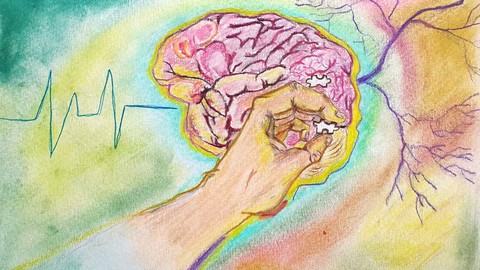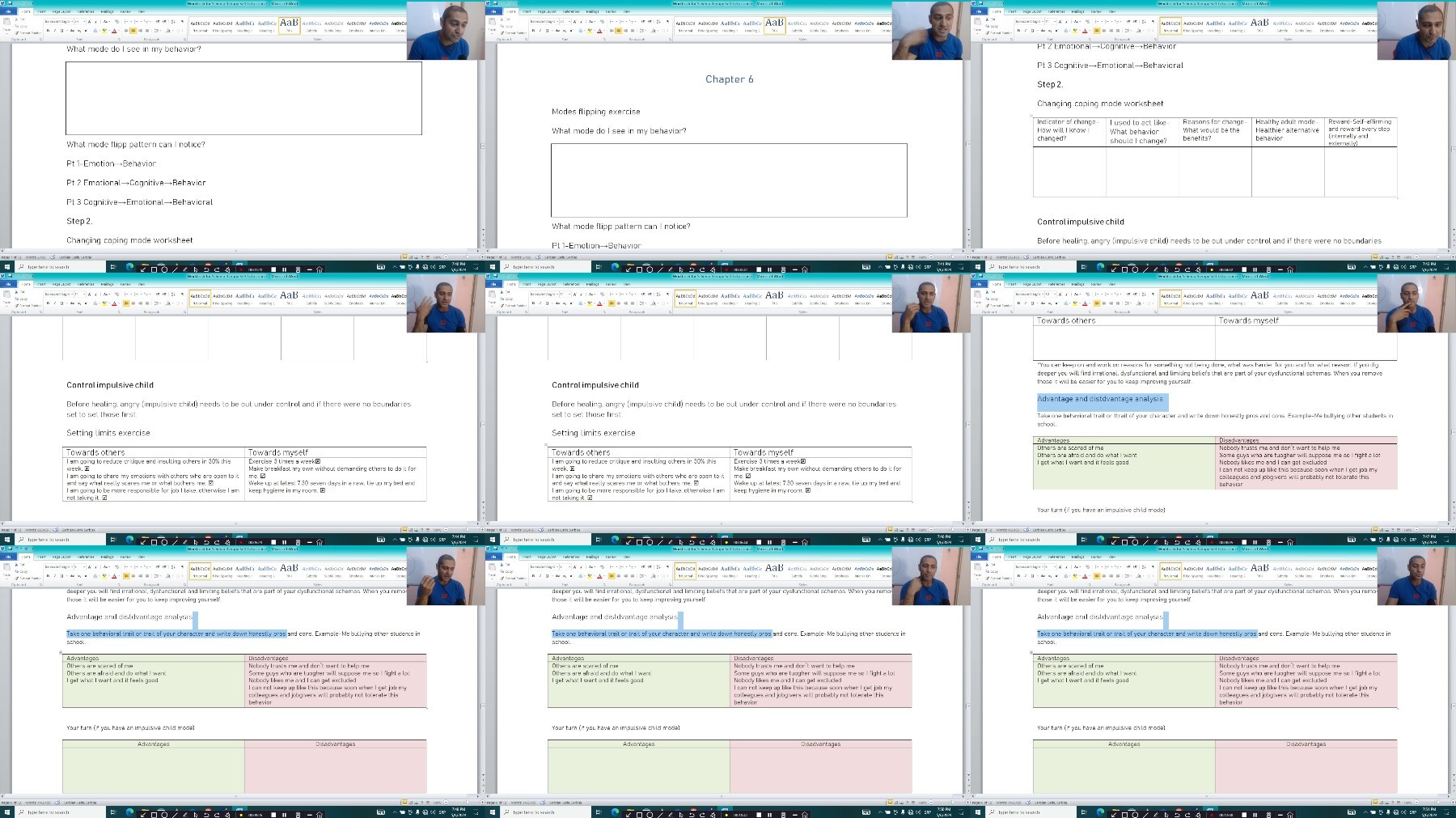
Schema Therapy For Self-Help And Self-Improvement
Published 5/2024
MP4 | Video: h264, 1920x1080 | Audio: AAC, 44.1 KHz
Language: English
| Duration: 6h 11m
Experience Schema Therapy first hand and set yourself free from your Lifetraps and Modes
What you'll learn
Principles of success in psychotherapy and self-improvement.
What coping mechanisms, how those influence our life and how to replace them with healthier behavioral alternatives.
Schema domains-How unmet needs shape our behavior, relationships and overall interaction with the external world.
Lifetraps-What lifetraps are, how to detect origins, how lifetraps correlate with certain modes and how to change them.
Modes of dysfunctional child and parent modes and how to treat it.
Types of interventions and techniques in Schema therapy.
Learn how to practice self-improvement and how to use Schema therapy for your self-growth in most effective way
Requirements
Willingness to learn and practice.
Description
Schema therapy for self-helpExperience Schema Therapy first hand set yourself free from your Lifetraps and ModesWhat you will learn
Overview
Section 1: Introduction
Lecture 1 Different forms of psychological help
Lecture 2 3 stages of transformation
Lecture 3 Principles of Absolute acceptance
Section 2: Factors of success in self-improvement
Lecture 4 1-Psyhotherapy vs coaching vs counselling vs self-improvement
Lecture 5 2-Personal growth success factors
Lecture 6 3-Factors that influence success in therapy process
Lecture 7 4-Internal factors of success in self improvement
Lecture 8 5-External factors of success in self improvement
Lecture 9 Practicum for this chapter
Section 3: Coping mechanisms
Lecture 10 1-Intro to chapter 3-Schemas, domains, lifetraps, modes
Lecture 11 2-ABCs of Schema therapy
Lecture 12 3-Coping modes presentation
Lecture 13 4-Coping mechanisms recognition
Lecture 14 4b Coping modes worksheet and self reflecting questions
Lecture 15 Chapter 3 practicum
Section 4: Schema domains
Lecture 16 1-Disconnection and rejection domain
Lecture 17 2-Impaired autonomy domain
Lecture 18 3-Impaired limits
Lecture 19 4-Other directedness domain
Lecture 20 5-Hypervigilance and inhibition domain
Lecture 21 6-Early maladaptive schemas and dysbalance
Lecture 22 7-Practicum 4a problem exercise
Lecture 23 8-Practicum 4b
Section 5: Lifetraps
Lecture 24 1-Schema reminder and relation to needs and domains
Lecture 25 2-Lifetraps of disconnection and rejection domain
Lecture 26 3-Impared autonomy lifetraps
Lecture 27 4-Imapred limits lifetraps
Lecture 28 5-Others directedness lifetraps
Lecture 29 6-Hypervigilence and inhibition lifetraps
Lecture 30 7-Practicum 5
Section 6: Child and parent mode
Lecture 31 1-Dysfunctional modes pt 1
Lecture 32 2-Dysfunctional modes pt 2
Lecture 33 3-Dysfunctional modes pt 3
Lecture 34 4-Modes flipping patterns
Lecture 35 5-Changing dysfunctional modes pt 1
Lecture 36 6-Changing dysfunctional modes pt 2 (coping mode change)
Lecture 37 7-Changing angry child mode
Lecture 38 8-Changing vulnerable child mode
Lecture 39 9-Strengthening inner child
Lecture 40 10-What means to be healthy adult pt 1
Lecture 41 11-What means to be healthy adult pt 2
Lecture 42 12-Strengthening happy child and healthy adult simultaneously
Section 7: Techniques and interventions
Lecture 43 1-Primarely cognitive interventions
Lecture 44 2-Behavioral interventions
Lecture 45 3-Emotional focus interventions
Lecture 46 4-Emotional Alchemy pt 1
Lecture 47 5-Emotional Alchemy pt 2
Section 8: Practicum for chapters 6 and 7
Lecture 48 Modes flipping exercise
Lecture 49 2-Connect trigger point and unmet need
Lecture 50 3-Ideas for behavioral experiments and how to do it
Lecture 51 4-Heal vulnerable child
Lecture 52 5-Promote and strengthen healthy adult
Lecture 53 6-Examening change exercise
Lecture 54 7-Last lession
Everyone eager to learn about schema therapy, self-help practitioners.,Coaches, counsellors, parents, teachers, therapists of different modalities of psychotherapy.


Free search engine download: Schema therapy for selfhelp and selfimprovement






